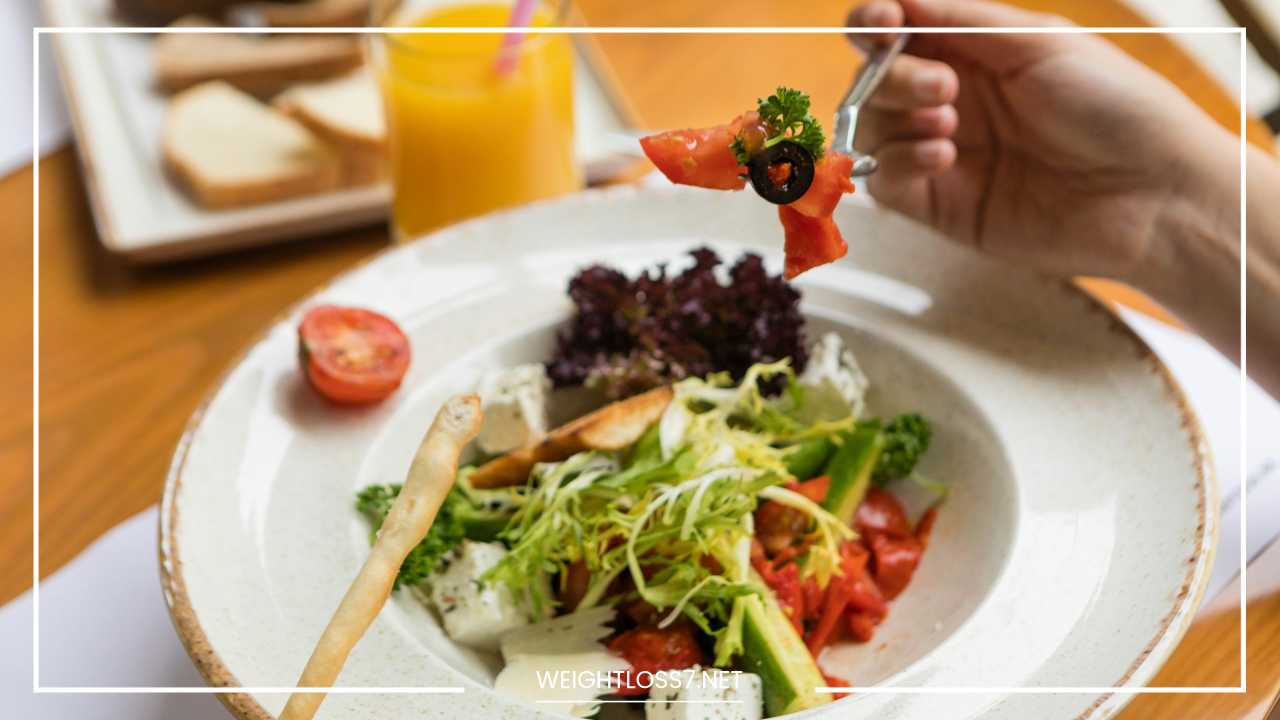Vegan Diet: Benefits, Challenges, and Getting Started

Vegan Diet
Unveiling the Vegan Diet: A Deep Dive into Plant-Based Eating
The vegan diet has exploded in popularity in recent years, captivating individuals worldwide. But what exactly does it entail? Is it merely a dietary choice, or a philosophy woven into the fabric of lifestyle?
This blog post delves into the world of veganism, exploring its core principles, potential health benefits, and practical tips for those considering a plant-based journey.
Embracing a Plant-Powered Lifestyle: The Vegan Philosophy
Veganism goes beyond just food choices. It’s a philosophy that strives to eliminate all forms of animal exploitation. Vegans abstain from consuming animal products like meat, poultry, fish, eggs, and dairy.
They often extend this principle to avoid animal-derived materials like leather, wool, and fur in clothing and accessories. The core motivations behind veganism can be broadly categorized into three pillars:
- Ethics: Vegans believe animals are sentient beings deserving of respect and freedom from suffering. Factory farming practices and animal testing raise ethical concerns that veganism seeks to address.
- Environment: Animal agriculture has a significant environmental impact, contributing to greenhouse gas emissions, deforestation, and water pollution. A vegan diet boasts a smaller eco-footprint, making it a sustainable choice for the planet.
- Health: Studies suggest that plant-based diets can offer numerous health benefits, potentially lowering the risk of heart disease, type 2 diabetes, and certain cancers.
Unveiling the Vegan Plate: A World of Plant-Based Delights
A vegan diet is anything but bland or restrictive. The plant kingdom offers a vibrant tapestry of flavors, textures, and nutrients. Here’s a glimpse into what a typical vegan plate might look like:
- Fruits and Vegetables: The foundation of a healthy vegan diet, these powerhouses provide essential vitamins, minerals, and fiber. From juicy berries to leafy greens and colorful peppers, the options are endless.
- Whole Grains: Brown rice, quinoa, oats, and whole-wheat bread provide sustained energy and dietary fiber.
- Legumes: Beans, lentils, and chickpeas are protein powerhouses, offering a meaty texture and essential amino acids.
- Nuts and Seeds: Rich in healthy fats, protein, and micronutrients, nuts and seeds like almonds, walnuts, chia seeds, and flaxseeds, add a delightful crunch to vegan meals.
- Plant-Based Milks and Yogurts: Made from soy, almond, coconut, or oat milk, these dairy alternatives provide calcium and essential nutrients.
A Rainbow of Vegan Cuisine: Exploring Culinary Delights
Gone are the days of boring salads! Vegan cuisine is a vibrant exploration of global flavors. Here are some culinary delights to tantalize your taste buds:
- Asian Inspirations: Curries packed with vegetables and tofu, stir-fries bursting with color, and hearty noodle soups are just a few examples.
- Italian Delights: Vegan pizzas piled high with roasted vegetables, creamy tomato pasta dishes, and flavorful risottos made with plant-based milks are all vegan possibilities.
- Mexican Fiesta: Bursting with beans, rice, and fresh vegetables, tacos, burritos, and enchiladas can be easily veganized.
- American Comfort Food: Vegan burgers, mac and “cheese” made with cashews, and BBQ jackfruit sandwiches redefine comfort food in a plant-based way.
Embarking on the Vegan Journey: Practical Tips for Success
Transitioning to a vegan diet can be a smooth and enriching experience with the right approach. Here are some tips to set you on the path to success:
- Start Gradually: Don’t overwhelm yourself with a complete overhaul. Introduce plant-based meals gradually, allowing your taste buds and body to adjust.
- Plan Your Meals: Planning meals and snacks ensures you have healthy vegan options readily available. Explore cookbooks, blogs, and online resources for inspiration.
- Stock Your Pantry: Keep your pantry stocked with vegan staples like whole grains, canned beans, lentils, nuts, seeds, and plant-based milk.
- Learn New Skills: Embrace the opportunity to learn new cooking techniques. Mastering tofu scrambles, lentil stews, and chickpea curries can add variety to your meals.
- Find Your Tribe: Connect with other vegans online or in your community. Sharing experiences, recipes, and support can make the journey more enjoyable.
Addressing Potential Concerns: Ensuring a Balanced Vegan Diet
While a vegan diet offers numerous benefits, it’s crucial to ensure you’re getting all the essential nutrients. Here are some potential concerns and solutions:
- Vitamin B12: Found primarily in animal products, vitamin B12 is crucial for neurological function. Fortified foods like cereals and plant-based milks or B12 supplements can bridge this gap.
- Calcium: Dairy products are often a primary source of calcium, but vegans can thrive with alternative sources. Leafy greens like kale and collard greens, fortified plant-based milks, calcium-set tofu, and certain nuts and seeds are excellent options. Adding a squeeze of lemon juice to meals can further enhance calcium absorption.
- Iron: Vegans can meet their iron needs through plant-based sources like lentils, beans, chickpeas, fortified cereals, dark leafy greens, and tofu. Pairing iron-rich foods with vitamin C-rich sources like tomatoes, citrus fruits, and bell peppers enhances iron absorption.
- Protein: Contrary to a common misconception, vegans can easily obtain adequate protein from a well-planned diet. Beans, lentils, chickpeas, tofu, tempeh, seitan, quinoa, nuts, seeds, and whole grains all contribute to protein intake. Combining these plant-based sources throughout the day ensures you get all the essential amino acids.
Beyond the Plate: Embracing a Holistic Vegan Lifestyle
Veganism extends beyond dietary choices. Here are some ways to embrace a holistic vegan lifestyle:
- Ethical Shopping: Opt for cruelty-free, vegan clothing and accessories made from sustainable materials like organic cotton, hemp, or recycled polyester.
- Animal Welfare Advocacy: Support organizations that fight for animal rights, volunteer at animal shelters, or raise awareness amongst your family and friends.
- Environmentally-Conscious Living: Minimize waste consumption, adopt eco-friendly practices like composting and using reusable bags, and explore sustainable transportation options.
- Mindful Consumption: Prioritize locally-sourced, seasonal produce to reduce your carbon footprint. Support ethical, sustainable farming practices that promote animal welfare and environmental stewardship.
Unveiling the Benefits: A Look at Veganism’s Impact
Personal Health: Studies suggest that a well-planned vegan diet can offer numerous health benefits. Research indicates a potential reduction in the risk of:
- Heart Disease: Vegan diets tend to be lower in saturated fat and cholesterol, factors linked to heart disease. They are often rich in fiber, which can help lower LDL (“bad”) cholesterol.
- Type 2 Diabetes: Plant-based diets tend to be lower in refined carbohydrates and sugar and higher in fiber, contributing to better blood sugar control.
- Certain Cancers: Studies suggest a possible lower risk of certain cancers, particularly those linked to hormones, with a vegan lifestyle.
- Obesity: Vegan diets tend to be lower in calories and fat, and higher in fiber, which can contribute to weight management.
Environmental Impact: Animal agriculture contributes significantly to global warming, deforestation, water pollution, and resource depletion. Shifting towards a vegan diet can significantly reduce your environmental footprint.
Ethical Considerations: Veganism offers a way to align dietary choices with ethical beliefs. Factory farming practices and animal testing raise concerns about animal welfare. Choosing a vegan lifestyle promotes compassion and respect for all sentient beings.
Exploring Diverse Motivations: Who Chooses a Vegan Diet?
People choose a vegan lifestyle for a variety of reasons. Here are some common motivations:
- Ethical Concerns: The desire to live a life free from animal exploitation drives many individuals to embrace veganism.
- Environmental Awareness: Concern about the environmental impact of animal agriculture motivates others to adopt a plant-based diet.
- Health Benefits: Some individuals choose veganism to improve their health and well-being.
- Religious or Spiritual Beliefs: Certain religions and spiritual paths promote vegetarianism or veganism as a way of living in harmony with all living beings.
Building a Sustainable Vegan Lifestyle: Addressing Common Challenges
- Social Pressures: Navigating social situations with non-vegans can be challenging. Prepare to be asked questions about your diet, and be proactive in offering vegan substitutes for group meals.
- Dining Out: Research vegan-friendly restaurants beforehand or inquire about vegan options when dining out. Many restaurants offer plant-based alternatives these days.
- Travel Considerations: Traveling can be an adventure for vegans too. Research vegan-friendly restaurants and grocery stores in your destination beforehand. Be creative in restaurants and choose vegetable curries, salads, or build-your-own options with vegan ingredients.
Veganism: A Journey of Discovery and Transformation
Embracing a vegan lifestyle is a journey of discovery and personal growth. It’s about nourishing your body, protecting the planet, and aligning your choices with your values.
It’s about learning new recipes, exploring diverse cuisines, and fostering a connection with the natural world.
With research, planning, and a positive attitude, you can embark on a rewarding vegan journey that enriches your life and cultivates a sense of compassion that extends beyond your plate, creating a ripple effect of positive change for yourself, the environment, and all living beings.
Veganism and You: Addressing Common Myths and Misconceptions
Veganism is often shrouded in myths and misconceptions. Here are some common ones debunked:
- Myth: Vegans Don’t Get Enough Protein: As discussed earlier, a well-planned vegan diet can easily meet protein needs through a variety of plant-based sources.
- Myth: Vegan Diets Are Restrictive and Boring: The vegan culinary world is bursting with flavor and variety. From international cuisines to creative plant-based twists on classic dishes, there’s something for every palate.
- Myth: Vegan Diets Are Expensive: While some specialty vegan products may carry a premium, staples like beans, lentils, grains, and vegetables are generally cost-effective. Planning your meals and buying in bulk can further reduce costs.
- Myth: Veganism is a Fad: Veganism is a growing movement with a strong ethical and environmental foundation. It’s here to stay!
The Future of Food: Exploring Plant-Based Innovation
The plant-based food industry is undergoing a revolutionary transformation. Here are some exciting trends shaping the future of food:
- Plant-Based Meat Alternatives: Companies are creating innovative plant-based meat alternatives that mimic the taste and texture of meat so effectively that even meat-eaters are enjoying them.
- Cellular Agriculture: This emerging technology aims to grow meat directly from animal cells in a lab setting, potentially revolutionizing the food industry and mitigating the environmental impact of animal agriculture.
- Vertical Farming: This method of growing crops indoors in vertically stacked layers optimizes space utilization and resource efficiency, offering a sustainable solution for future food production.
Getting Started: Resources for Your Vegan Journey
Ready to explore the world of veganism? Here are some valuable resources to get you started:
- Cookbooks and Websites: Numerous cookbooks and websites offer delicious and inspiring vegan recipes. Explore resources like “The Vegan Society Cookbook,” “Forks Over Knives,” and “Oh She Glows.”
- Documentaries: Documentaries like “Cowspiracy” and “Forks Over Knives” explore the environmental and health impacts of animal agriculture, motivating viewers to consider a vegan lifestyle.
- Vegan Organizations: Organizations like The Vegan Society, PETA, and Veganuary offer support, resources, and information for individuals transitioning to a vegan diet.
- Online Communities: Connect with other vegans through online forums and social media groups. Share experiences, ask questions, and find encouragement in your vegan journey.
Final Word: Embracing a Vibrant Plant-Based Future
Veganism is more than just a diet; it’s a philosophy that embraces compassion, sustainability, and a healthy lifestyle. As the world grapples with environmental challenges and ethical concerns regarding animal welfare, embracing a plant-based future offers a path forward.
Whether you’re motivated by health, ethics, or the environment, the vegan journey is a rewarding exploration. With the right resources, a positive attitude, and a willingness to learn, you can embark on a transformative experience that nourishes your body, protects the planet, and aligns your choices with your values.
So, take the first step, explore the vibrant world of veganism, and discover the power of plant-based living.

















